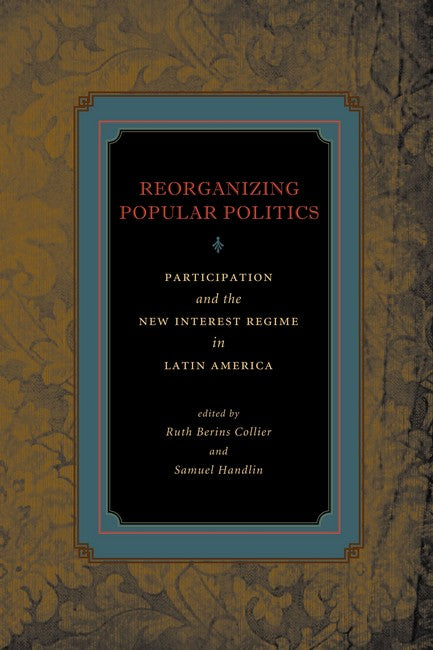Contents
Acknowledgments
Part I: Introduction: Interest Politics and the Popular Sectors
1. Introduction: Popular Representation in the Interest Arena
Ruth Berins Collier and Samuel Handlin
2. Situating the Analysis: Analytic Approach, Cases, and Historical Context
Ruth Berins Collier and Samuel Handlin
3. Logics of Collective Action and State Linkages: Comparing the UP-Hub and the A Net
Ruth Berins Collier and Samuel Handlin
Part II: Individual Participation in the Interest Arena
4. Direct Action and Associational Participation: The Problem-Solving Repertoires of Individuals
Thad Dunning
5. Political Participation and Representational Distortion: The Nexus Between Associationalism and Partisan Politics
Jason Seawright
Part III: The Popular-Sector Interest Regime
6. Targeting State and Society: The Strategic Repertoires of Associations
Diana Kapiszewski
7. Three Forms of Scaling: Embeddedness, Nodal NGOs, and Flexible Fronts
Samuel Handlin and Diana Kapiszewski
8. Associational Linkages to Labor Unions and Political Parties
Candelaria Garay
Part IV: Conclusion
9. Conclusion: General Patterns and Emergent Differences
Samuel Handlin and Ruth Berins Collier
Appendix A: Selection of Focus Districts
Appendix B: Survey of Associations
Appendix C: Survey of Individuals
List of Contributors
References
Index

